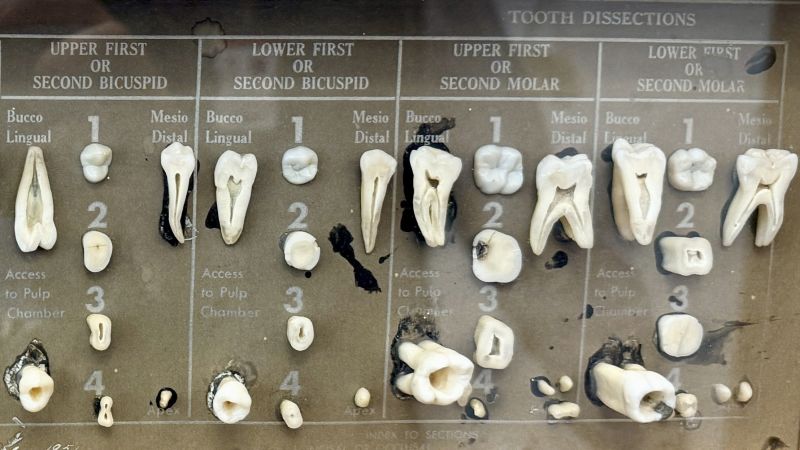Utah's Fluoride Ban: A Public Health Setback with Uncertain Consequences?
2025-05-07

CNN
Utah has recently enacted a law prohibiting the addition of fluoride to public water supplies, effectively ending a decades-long practice widely recognized as a major public health achievement. This decision, while seemingly straightforward, has sparked considerable debate and raised concerns among public health experts about the potential ramifications for oral health, particularly among vulnerable populations.
A History of Success: The Benefits of Fluoridation
For over 75 years, community water fluoridation has been a cornerstone of preventative dental care in the United States and around the world. The Centers for Disease Control and Prevention (CDC) has hailed it as one of the most significant public health achievements of the 20th century, citing its proven effectiveness in reducing tooth decay across all age groups. Fluoride, a naturally occurring mineral, strengthens tooth enamel, making it more resistant to acid attacks caused by bacteria and sugars. It's particularly beneficial for children, helping to establish healthy teeth from an early age. The cost-effectiveness of fluoridation is also a major advantage, providing widespread protection at a relatively low expense.
The Utah Ban: Motivations and Concerns
The new Utah law, which took effect on Wednesday, represents a significant departure from this established practice. Proponents of the ban argue that fluoride is a form of medication that should not be added to public water without individual consent. They also express concerns about potential health risks, despite overwhelming scientific evidence to the contrary. This argument has gained traction among some groups who view government intervention in personal health choices as an overreach.
However, public health officials and dental professionals are voicing strong concerns about the potential negative consequences of this ban. They argue that eliminating fluoride from public water will disproportionately impact low-income families and those living in rural areas who may have limited access to dental care. Without fluoride, these populations are at a higher risk of developing tooth decay and experiencing the associated pain, suffering, and financial burdens. The American Dental Association (ADA) has strongly opposed the ban, emphasizing the well-documented benefits of fluoridation and debunking claims of significant health risks.
Potential Health Risks and Future Implications
While the scientific consensus firmly supports the safety and efficacy of community water fluoridation at recommended levels, concerns persist among some individuals. It's crucial to acknowledge these concerns and address them with accurate information. The potential health risks associated with excessive fluoride intake are minimal and typically only occur with significantly higher doses than those found in fluoridated water.
The ban in Utah raises broader questions about the future of public health initiatives and the role of government in protecting the well-being of its citizens. It highlights the importance of evidence-based decision-making and the need to combat misinformation that can undermine proven public health strategies. The long-term impact of this ban on the oral health of Utah residents remains to be seen, but many fear it will lead to a resurgence of tooth decay and exacerbate existing health disparities. Further research and monitoring will be essential to fully understand the consequences of this policy change.
Looking Ahead: Alternatives and Mitigation Strategies
With the ban now in effect, exploring alternative strategies to mitigate the potential negative impacts on oral health will be crucial. These may include increased access to dental care, expanded fluoride varnish programs for children, and promotion of fluoride toothpaste use. However, these alternatives are often more expensive and less effective than community water fluoridation, leaving many vulnerable populations at greater risk.






